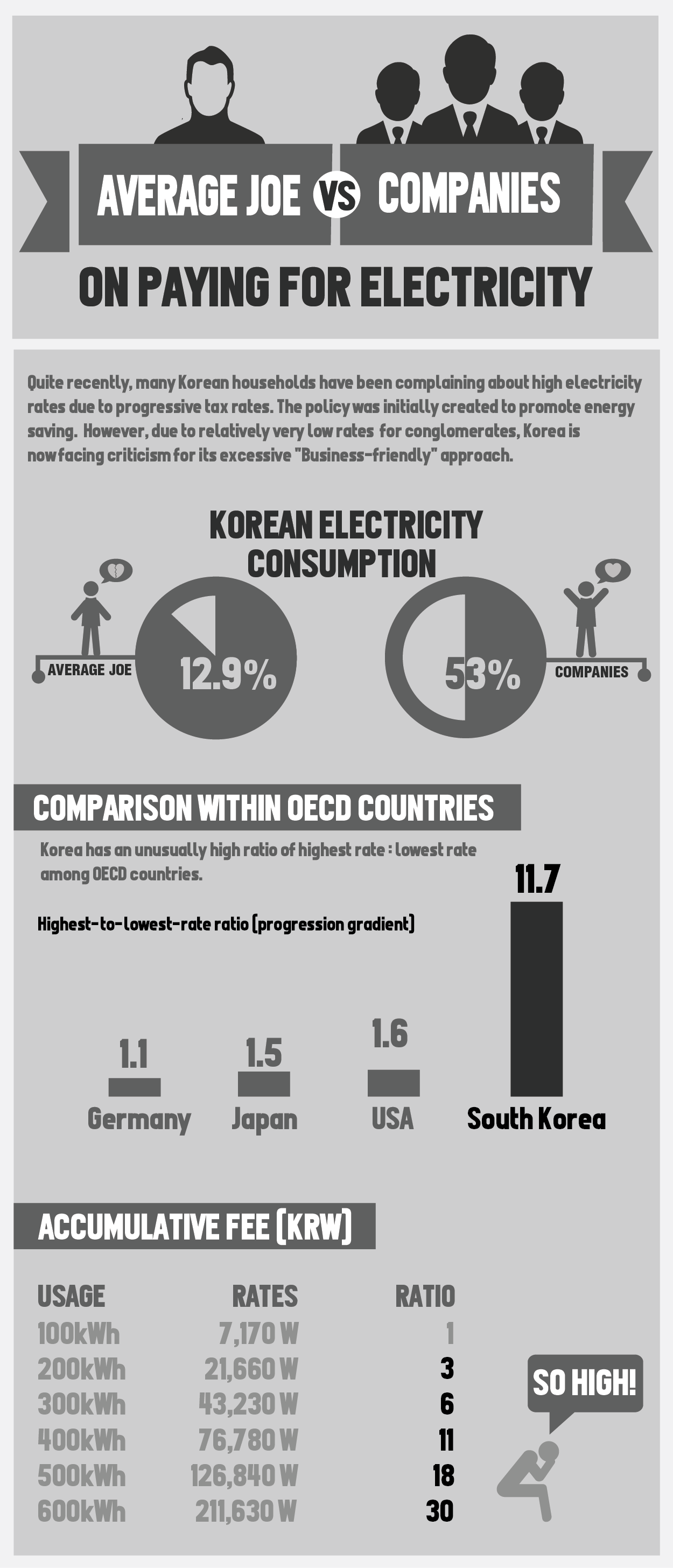Given the variety of policies adopted by different countries, one may be inclined to think that Korea is in dire need of relaxing the progressive rate it imposes on electricity consumption, especially for households. However, to students at KAIST, where electricity consumption at dormitories comes at no additional cost apart from the fxed monthly dormitory fees, it is apparent that an impetuous relaxation of rates may bring about an abusive behavior from the public, just as KAIST facilities are prone to excessive electricity consumption by unmindful residents. In that regard, Korea’s status quo and KAIST’s electricity consumption behavior should serve as two extreme examples, between which policymakers could strike a balance so as to maximize the utility of electricity provision and simultaneously, to incentivize the voluntary conservation of electricity on the consumers’ part.

An interesting trail of research published by the Korea Energy Economics Institute (KIEE) in 2008, the Korea Institute of Public FInance (KIPF) in 2012, and the National Assembly Budget Offce (NABO) earlier this year, all present different account on the effectiveness of the electricity billing system. Whereas KIEE and NABO have questioned whether the billing system was fulflling its purpose, KIPF has diagnosed the billing system to be fully functional and effective and has further described possible scenarios should changes be made to the existing billing system. For example, if the regulators were to rid of the progressive nature of the billing system, the immediate victims would be low-income households that would be paying more for the low-consumption levels than with the progressive billing system. Ironically, it is some of these low-income families that are calling for the abolishment of the current billing system since they are already receiving shocking bills. The progressive billing system failed to keep up with the increasing average incomes of families and their propensity to consume, so even low-income families’ electricity consumption levels surpass the low-tier, low-cost regions of the billing system.
Despite the sizeable volume of research fndings on the electricity billing system, it took the government a great deal of hullabaloo from the public and the social media before offcials, such as the prime minister, demanded major amendments be made to the billing system. A task force was hurriedly put together to tackle the controversy in response to public outcry.
However, it is precisely this incredibly responsive behavior that worries some analysts, as it would have been far more productive for the administrations to have listened to the researchers at KEEI and NABO, who have been scrutinizing the electricity billing system, and those at KIPF, for the sake of weighing in the proponents of the billing system for a constructive policy-making debate, instead of directly engaging in a ping- pong of arguments with the public and trying to meet a variety of demands simultaneously. At this rate, it would not come as a surprise if the task force only produces a patchwork placebo of populist policies that would calm most of the public in the short run and not contemplate on the long run and fundamental effects of the policy.
A more macroscopic view considers institutional issues more urgent. This viewpoint likes to ridicule the entire “number quarrels” about how many electricity consumption level sectors there should be, how much each sector should be charged, or at what kWh should the level dividers should be. KAIST Professor Youngsun Kwon writes in a Digital Times column, “Public good regulators should be granted some institutional autonomy not only from the executive branch but also from the political sphere of infuence itself.” That is, all the decisions that have decorated the past months’ headlines should be made by an independent regulatory body, even if it meant years of time and research, most of which have been largely overlooked by administrations past and present.

